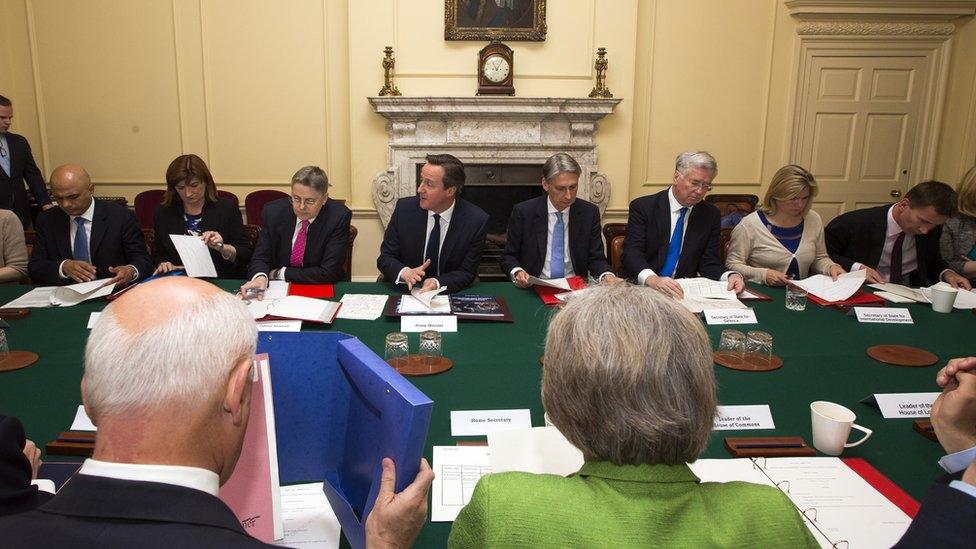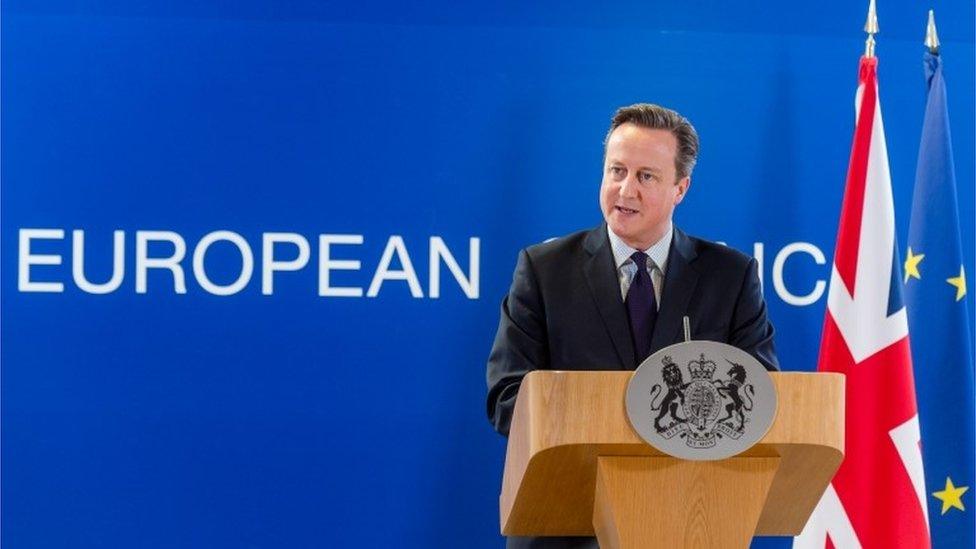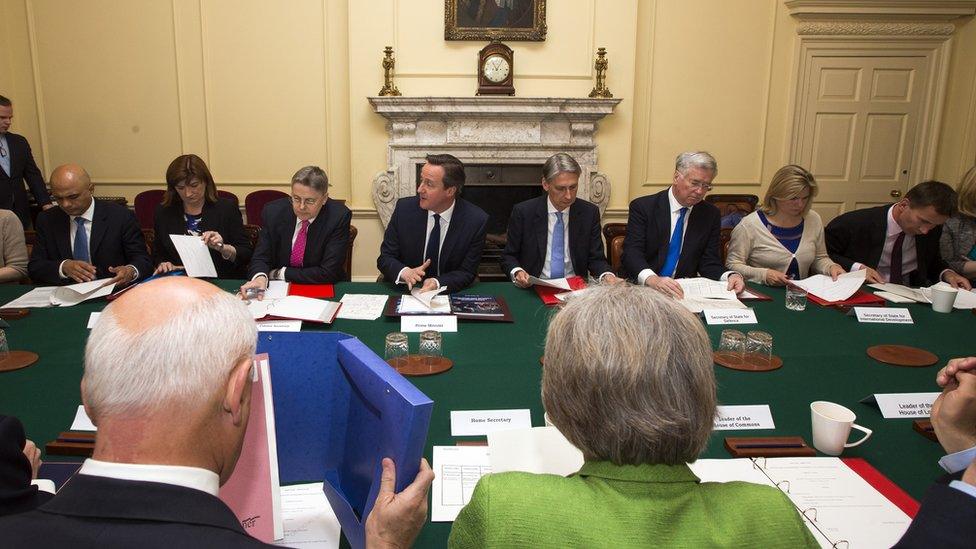Cameron tries to avert EU slanging match
- Published

How do you stop a polite conversation about politics, even with your nearest and dearest, descending into a slanging match?
The only failsafe answer of course is not to talk about politics at all.
But it's a very real question that the prime minister faces right now. He says ministers who want to campaign to leave the EU will be able to do so in the runup to the vote.
Robust messages
But on this subject, that has so divided the Conservatives in the past, how can he stop what will be an energetic debate in the party doing lasting damage?
The Downing Street headed notepaper, the clarifications of parliamentary precedent, and the careful words all look terribly polite.
But in David Cameron's three-page letter to his ministers this afternoon, there are some robust messages to his own side, and evidence of his own anxieties about the self-harm the Conservatives could indulge in during the coming months.
It was only last week that he succumbed to the (almost) inevitable and said that ministers will be able to vote according to their beliefs, and campaign to leave the EU in the referendum. But the PM clearly believes the decision alone is not enough. So, to try to rein people in, he's published a set of rules.

First off, in no uncertain terms, ministers are told to keep quiet on the subject until he reaches a deal, expected in the middle of next month.
But even after the negotiations are complete, the letter states that ministers will only be able to give their overall positions on the basic question, stay or go.
He writes "all other EU or EU-related business…will continue to be subject to the normal rules of collective responsibility".
So, a row between the Home Office and Brussels over a new European regulation? A spat between DEFRA and the EU about environmental regulations?
Under David Cameron's rules, Eurosceptic government ministers would not be allowed to use evidence from normal government business to make the case to leave.
Lib Dem comparison
And ministers who want to leave the EU won't be able to use the power, the drama of Westminster itself to argue for exit.
Number 10 will not allow Eurosceptics with jobs in the government to campaign for Out from the backbenches, nor will they be allowed to speak at length on the issue from the despatch box.
If they are asked a question by an MP that requires them to make reference to an EU issue, they will be able to point out their own position, while also referring to the government policy.
But that's as far as it goes, whereas the prime minister, and those who are expected to campaign to stay will be able to argue for the government position, almost inevitably making the case to stay.
Tonight, it's prompted accusations there simply is one rule for one side, another for the other. Campaigners for Out are gleefully pointing out tonight that ministers are being given less licence to express their views than Liberal Democrat ministers were under the coalition.
Crucial window
The civil service won't be neutral, and will support the government's position "in the normal way".
Eurosceptic cabinet ministers I've spoken to are relatively relaxed about the suggestions, but with one important caveat, that the prime minister does not use the immediate aftermath of the summit where he agrees the deal, to hail it as a huge breakthrough before they are allowed to make their case.
With summits finishing on Friday afternoons, and the Cabinet traditionally meeting on Tuesday mornings, there are nerves about a vital 72-hour gap where the campaign to stay could suddenly have huge advantage.
Most telling perhaps is what the letter tells us about the political dangers of this project, probably the biggest risk David Cameron has ever taken.
He calls for Conservative ministers to remain a "united, harmonious, mutually respectful team".
The fact he feels the need to spell that out suggests just how worried he may be about polite disagreement descending into bitterness.
- Published11 January 2016
